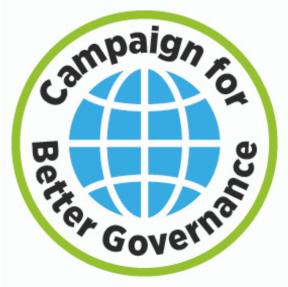
Are company boards measured in the right way, and are those methods current? As we look to the future, on what criteria are we basing assumptions about executive boards’ abilities to innovate their way out of this, or any other crisis?
To solve intellectual challenges in actionable ways, boards need sector-specific and wider skills. Against a backdrop of unprecedented disruption, however, we still regard professional qualifications – often achieved decades ago – as tools that are still relevant today.
Furthermore, the metrics that rate their worth still depend on company disclosure instead of foreseeing evolving stakeholder scrutiny. We lack a modern methodology to assess a board’s ability to think ahead.
Those crucial but often historic chartered stepping-stones that propelled careers often lose their relevance once responsibilities have been delegated. Everybody on LinkedIn seems to have them, yet specific specialisations have little in common with extraordinary external risks. They do not prepare a board to handle the unknown, for example – and neither does a generalist MBA, given more to making a business out of learning, rather than advancing learning within a business. However multi-disciplinary, they both suggest theoretical ability – yet provide no way of benchmarking actual capability.
Perceived conflicts
Now look at the evaluation – board assessments are imperative, but introspective; rules-based evaluations focus on the same metrics they always have; the perceived conflicts between the combined roles of chairman and CEO, integrity and risk.
Today, surveys take account of attitudes to gender and diversity, but often fail to realise true inclusivity is a matter of self-identity, and that true resilience demands a board should be continuously mentored, not monitored.
More probing, perhaps are the harsher analytics that ratings agencies apply to a modern enterprise. Today their granular studies monitor the increasing integration of ESG criteria into institutional portfolios, while their discrete text fields capture the attainment of a CPA, FCA or CFA, say, if it falls out of a biography or an annual report. But how long will it be before they question more modern educational attainment?
Attaching a methodology that applies a value to such abilities is no easy undertaking. It is one thing for LinkedIn founder Reid Hoffman to say CEOs should behave like co-founders – even if their enterprise was founded a hundred years ago – and not like managers preoccupied with process. It is quite another to find a way of distilling that ability and shaping it into a reckonable and rateable commitment to professional development.
‘Scrutiny revolution’
We might start by anticipating the shifting expectations of the ‘scrutiny revolution’ that created Tripadvisor and myriad other unicorn feedback-software companies. ESG considerations aside, a modern customer in search of a £10 product review is no different from the modern investor second guessing a £10m CEO. What future demands can we anticipate today, from investors, regulators, clients and talent alike?
Next up, we should reimagine management training as crisis management preparedness. It is not just a question of furnishing letters after a CEO’s name – of occasional attainment – it is evidence of a commitment to consistent development through real life education that needs to be captured and assessed.
We need to build a corporate culture in which real-world professional training futureproofs a company – not as a stand-alone strength, but as the beating heart that informs its decisions, fuelled by objective insights from outside the enterprise that resist the cosy eco-system of management-speak and company-think.
That is the way to demonstrate how a modern enterprise battles complexity and opposing realities by applying strategic thinking, not just tactical strategies. It is also how to evolve the workplace to meet the shifting expectations of those who develop their careers there, as well as those who want to invest their funds in their successes.
As a role model to such an initiative, a CEO could do worse than submit to the rigours of a PhD – especially one rooted in their sector. A PhD for a CEO might sound like a purely academic pursuit, but it really is not. The mere discipline of studying for a PhD – using real-life insights and actual data in a relevant management science rather than as theoretical hypothesis – has far more powerful commercial consequences than was previously thought possible. A ‘PhD CEO’, after all, is no different to a professor in a teaching hospital, who attracts funding by applying research to healing.
Developing the analogy, it was medical research that quickly found the vaccine. How could a cancer specialist function today with the learnings gained 20 years ago? Would greater management research have inoculated enterprise against unforeseen risk just as successfully?
Just as academia and practice coincide in a hospital, so should management research reconnect with management reality, as we apply and recognise a new attitude to open minded academic thinking inside our companies.








